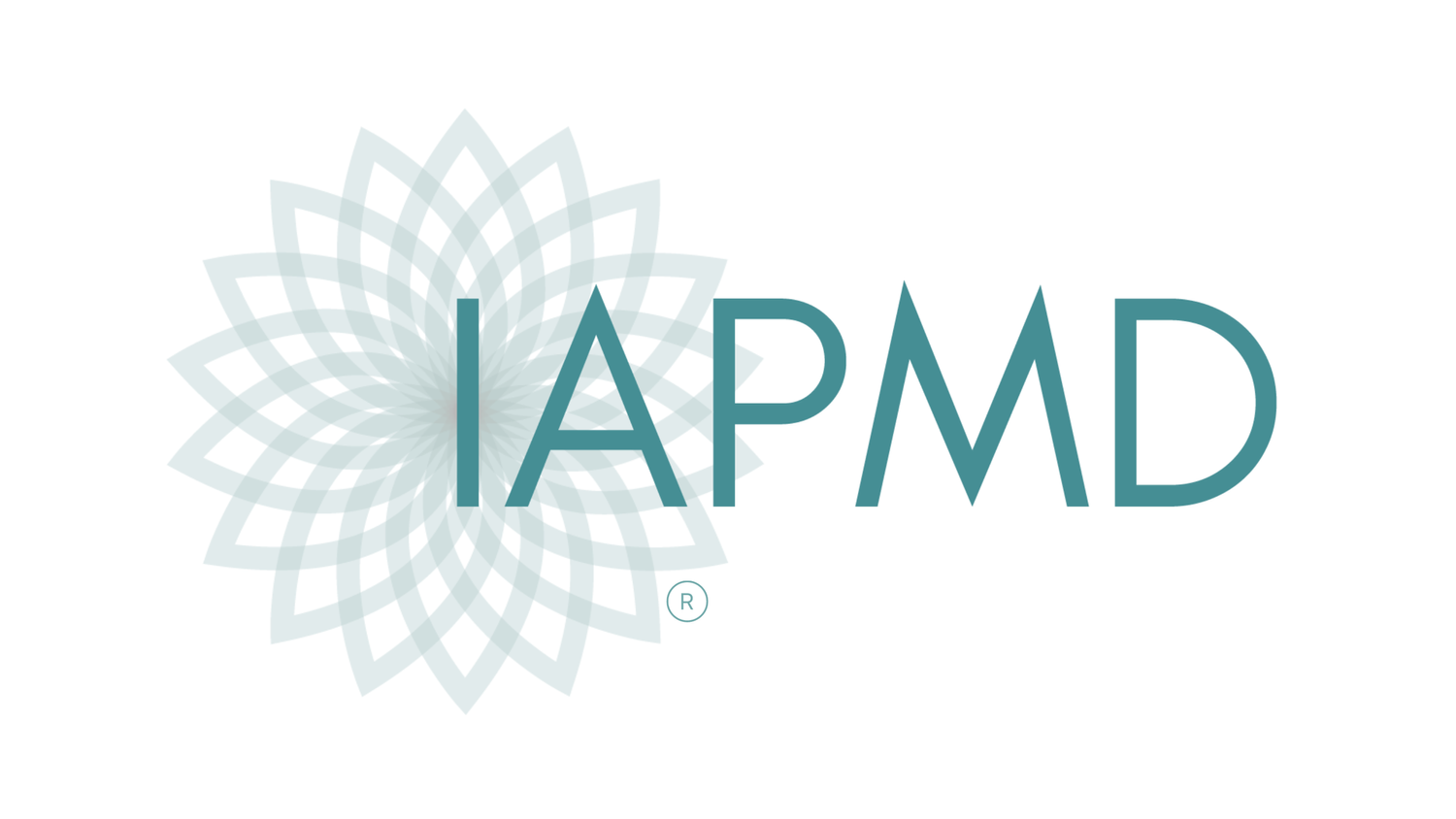IAPMD Position Statement on New ACOG Clinical Practice Guideline for Premenstrual Disorders
The IAPMD Board of Directors approved the following position statement on the new American College of Obstetricians and Gynecologists (ACOG) Clinical Practice Guideline for severe PMS and PMDD. The position statement will be used to guide IAPMD’s programming and messaging as it relates to treatment guidelines for PMDs.
Background:
The American College of Obstetricians and Gynecologists (ACOG) announced the release of its Clinical Practice Guideline for the management of premenstrual disorders. The document, which appears in the December 2023 issue of Obstetrics & Gynecology, is meant to provide recommendations for physicians in treating premenstrual disorders like premenstrual syndrome (PMS) and premenstrual dysphoric disorder (PMDD). These updated recommendations are based on currently available evidence about treatments that work best and are safest for patients with PMDs. The guidelines discuss what treatments have the most evidence behind them as well as those that are not recommended. They indicate what the standard of care is in the U.S.
Takeaways:
The latest guidance from experts on treating PMS and PMDD indicates that antidepressants, specific forms of oral birth control, and CBT (“talk therapy”) have the most evidence behind them.
Other options, including hormone agonists, exercise, calcium supplements, and certain types of pain relievers, are less recommended, although they are not actively discouraging their use.
The ACOG guidelines advise against bilateral oophorectomy (removing the ovaries) with or without hysterectomy (removing the uterus) as a first-line treatment for PMS or PMDD.
Experts say these guidelines will help both women and their doctors better understand these conditions so that women can get the healthcare they need.
IAPMD Position
Tory Eisenlohr-Moul, PhD, Chair, IAPMD Clinical Advisory Board:
“We are excited and relieved at the release of these guidelines, representing the first clinical practice guidelines from a major medical practice organization. This is an important step that will increase recognition and evidence-based treatment of premenstrual disorders by physicians, especially obstetrician-gynecologists.”
“The inclusion of global data suggesting high suicide risk in PMDs, which were generated through a collaboration between the IAPMD patient advocates and our clinical advisory board, represents an important recognition of the severity of symptoms in this hormone-driven disorder.”
“We are pleased that these guidelines represent a collaboration between gynecologists and psychiatrists, as increased communication and collaboration between these disciplines is critical to ensure patients have access to the full spectrum of evidence-based treatments for PMDs.”
Sandi MacDonald, IAPMD Executive Director:
“IAPMD supports the ACOG for recognizing that all OBGYNs need to be thinking more about diagnosing and treating premenstrual disorders, like PMDD, more often, because women/AFAB are suffering in silence.”
“IAPMD’s work helped inform these guidelines. Our 2018 Global Survey of Premenstrual Disorders (2018 GSPMD) that found an extremely alarming number of people - 34% - with premenstrual dysphoric disorder (PMDD) have attempted suicide, published in BMC Psychiatry, is referenced. Also, IAPMD is included as a resource for patients and families.”
“PMDD has been invisible for far too long. It’s underdiagnosed, misdiagnosed, and, at worst, the lack of understanding leads to harmful ridicule and shaming of suffers. These guidelines will help raise awareness and understanding of reproductive health and how debilitating PMS and PMDD are.”
“Patients will benefit from the guidelines because their provider will be better able to make a more accurate diagnosis and ultimately deliver better care. The guidelines also offer some direction as to what women/AFAB can do at home to help with premenstrual symptoms, as well as information on what may be helpful to discuss with an OBGYN.”
Action to be Taken
IAPMD strongly encourages efforts to disseminate and implement these guidelines in various clinical settings, including primary care, psychiatry and clinical psychology, and obstetrics and gynecology.
We also wish to highlight the importance of integrating these guidelines into residency training programs for primary care providers, psychiatrists, clinical psychologists, and obstetrician-gynecologists, as current training guidelines for these disciplines do not require thorough clinical training in PMDs. It is our hope that the release of these guidelines will lead to better healthcare training and improved outcomes for patients.
Resources & Links:
IAPMD.org for information, resources, and support for women/AFAB of reproductive age who suffer from PMDD or PME.
About the IAPMD:
The International Association for Premenstrual Disorders (IAPMD) is the leading voluntary health organization that aspires to create a world where people with Premenstrual Dysphoric Disorder (PMDD) and Premenstrual Exacerbation (PME) can survive and thrive. Our mission is to inspire hope and end suffering in those affected by Premenstrual Disorders (PMDs) through peer support, education, research, and advocacy. What began as a collective of fellow sufferers in 2013 has grown into a global movement accelerating the progress being made worldwide.
